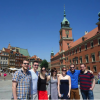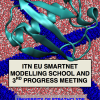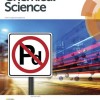Research in the TuttleLab is focused on the concept of reducing molecular search spaces. The reduction of molecular search spaces involves the use of computational methodology to inform, focus and drive the direction of molecular research. The group works in close collaboration with experimental colleagues to ensure the results from our design work are able to be directly implemented in a practical laboratory. The process of reducing molecular search spaces involves three phases: (1) rationalising and understanding existing systems; (2) isolating the governing molecular processes; and (3) predicting new systems with enhanced/desirable properties and reactivities. A variety of different methods are used in pursuit of this goal, including ab initio, DFT, semi-empirical, MM, coarse grain and hybrid QM/MM methodologies.
News From the Lab
Final Year Graduants – 2014
Congratulations to our final year students Iain Cameron (MChem), Kimberley Ross (MChem) and Louise Cranston (BSc Hons) who all graduated today. Best wishes for the future from all of us in the group!

TuttleLab Retreat 2014 – Warsaw, Poland
This years TuttleLab Retreat took place in Warsaw, Poland. Some of our students enjoyed a weekend of good food, better beer and great weather, whilst taking in the sights of both the old and new town. Thanks go to Katie Emery for organising such an enjoyable trip, let’s see if we can top it next […]

Progress Meeting for the SmartNet ITN
The Third Progress Meeting of the ITN EU Smartnet and the Modelling School were held at Strathclyde University on May 2014. Inês and Iván have been closely involved in the organisation of the 3-day Molecular Dynamics workshop and preparation of the tutorials. Other Tuttlelab Members, in particular Dan and Gary also helped in supporting and helping […]

Metal-Free coupling reactions chosen as the cover for Chemical Science.
Our work with the Murphy group on the role of super electron donors in promoting metal-free aryl-aryl coupling reactions has been chosen as the cover for Chemical Science. This work has attracted a lot of attention and stayed consistently in the top 5 of most downloaded articles for Chemical Science in the first two months of its online […]








